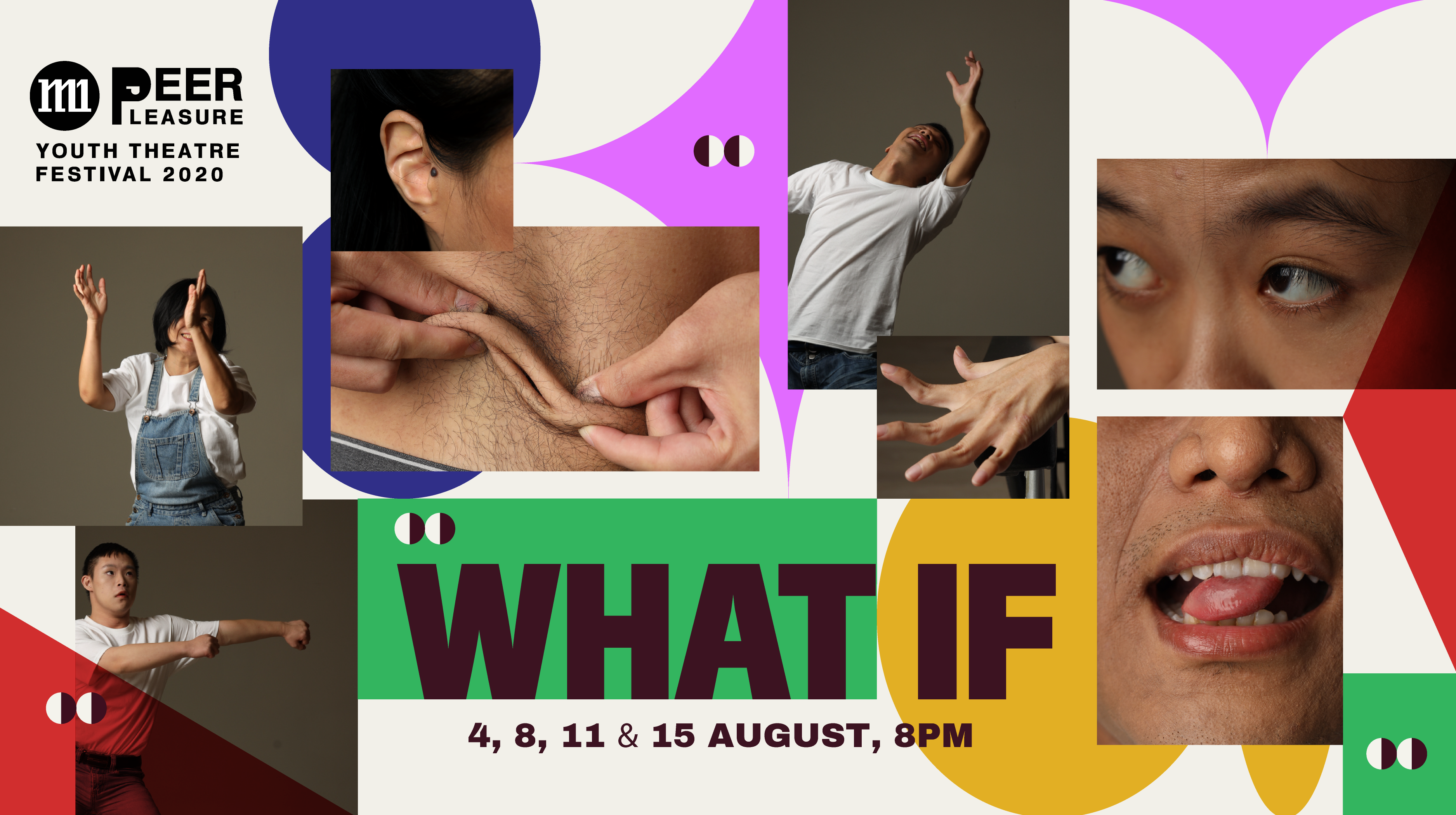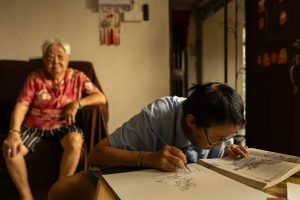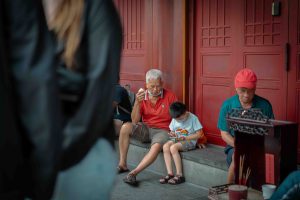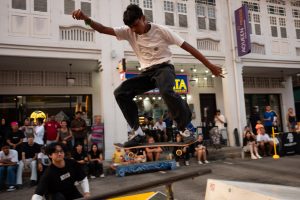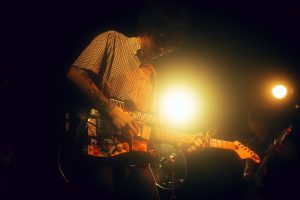Pivoting cleverly around this overlap is Frozen. Broken. Poof!, a new play that is part of What If, M1 Peer Pleasure Youth Theatre Festival 2020. Fittingly, it features a cast of persons with disabilities, whose personal difficulties are incorporated into the show, and is one of the first plays in Singapore to be devised, rehearsed, and staged virtually over Zoom.
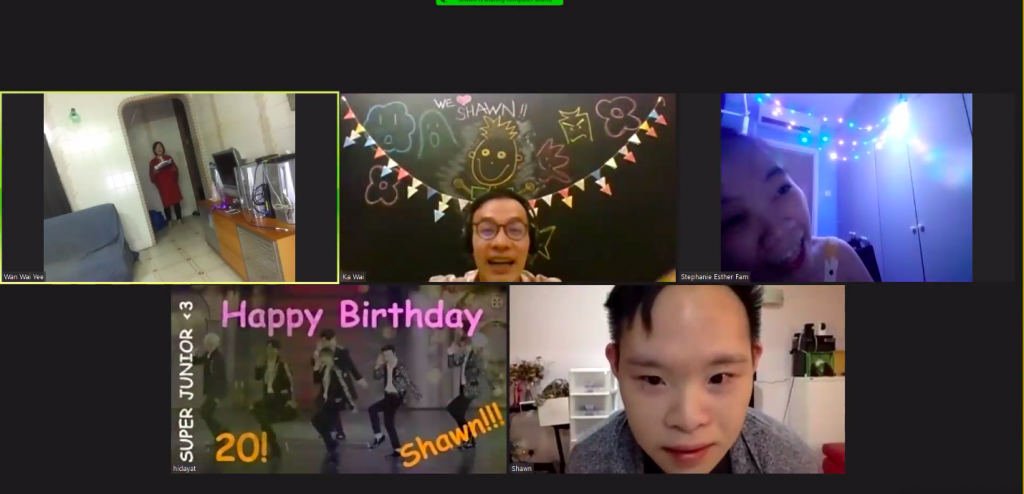
That’s it.
In keeping the plot so uneventful, the play subverts all the old adages of theatre. For one, there’s no antagonist who stages conflict and propels the narrative forward. Or, more accurately, the antagonist in this play isn’t a character. It is the social estrangement the pandemic has forced us into, embodied by the hollow simulacrum of life that is Zoom.
The characters constantly struggle with being heard and seen on Zoom. Through the play, they punctuate their lines with phrases like: “Sorry, my mic is not working,” or “Can you shift your camera to the right? I can’t see you.”
Initially, I thought that these lines were scripted, expressing the sort of frustration all of us have with video conferencing. Later, in an interview I had with the cast and directors of Frozen. Broken. Poof!, I discovered that they were all spontaneous interjections, which made me re-consider these lines as some kind of meta-commentary on how the conflicts we face tend to be internal, or with our environment, and not a larger-than-life villain.
“The audiovisual problems are not scripted. We actually encountered them during the rehearsal process, so we decided to let the cast respond to these problems naturally, in case they happen during the live show,” Tan Beng Tian, the assistant director, says, laughing.
Stephanie Esther Fam, one of the show’s actors, adds: “The script was written based on the problems all of us faced.”


For instance, two of the cast members have vision impairments. Thus, the play correspondingly features an atypically large amount of scene narration for the benefit of the visually impaired actors. Tung Ka Wai would describe a photograph that Wan Wai Yee was holding up to the camera, or someone would tell Hidayat that he is sitting in darkness because he had forgotten to turn his lights on.
Such excessive verbiage breaks the other cardinal rule of theatre: show, not tell. Yet, like the play’s first transgression, it only serves to push the boundaries of what we typically consider as “good theatre”: what is a well-crafted theatrical narrative, what constitutes action, conflict, or even character, and so on.
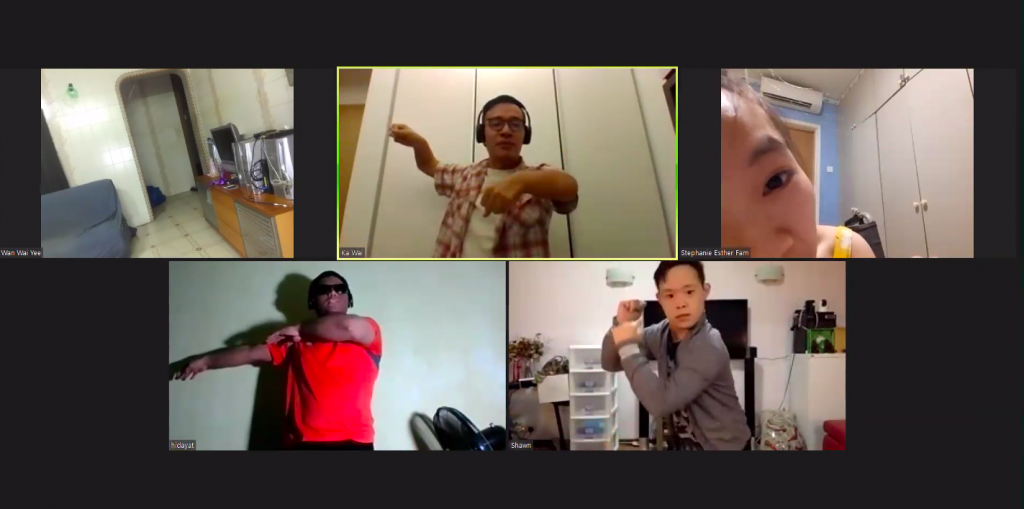
Attempting to stall for time as Wai Yee rustles up a makeshift birthday cake for Shawn, Hidayat asks Shawn Tan to teach him some dance moves. Shawn, who is a K-pop aficionado, enthusiastically launches into a routine which this middle-aged uncle can only describe as “pretending your arms are windscreen wipers”. As Hidayat has visual impairments, it falls upon Ka Wai to describe the dance moves to him so that Hidayat can mimic them.
“Hwah to the side!” Ka Wai exclaims.
“Like want to punch with your elbow!”
As Ka Wai gets more into it, his instructions grow so absurd that they reach fever pitch and infect the rest of the characters, who chime in with their equally ridiculous directions.
“Pretend you are wiping table!”
Through this frenzy of words, Hidayat is doing his best to follow the instructions thrown at him. The results, as you’d expect of someone trying to “hwah to the side”, are hilarious.
But the scene works even without the visual gag of Hidayat flapping around like a decapitated chicken. The dialogue alone elevates the scene, which, I think, demonstrates that theatre can adapt to the largely static and verbal medium that is Zoom.

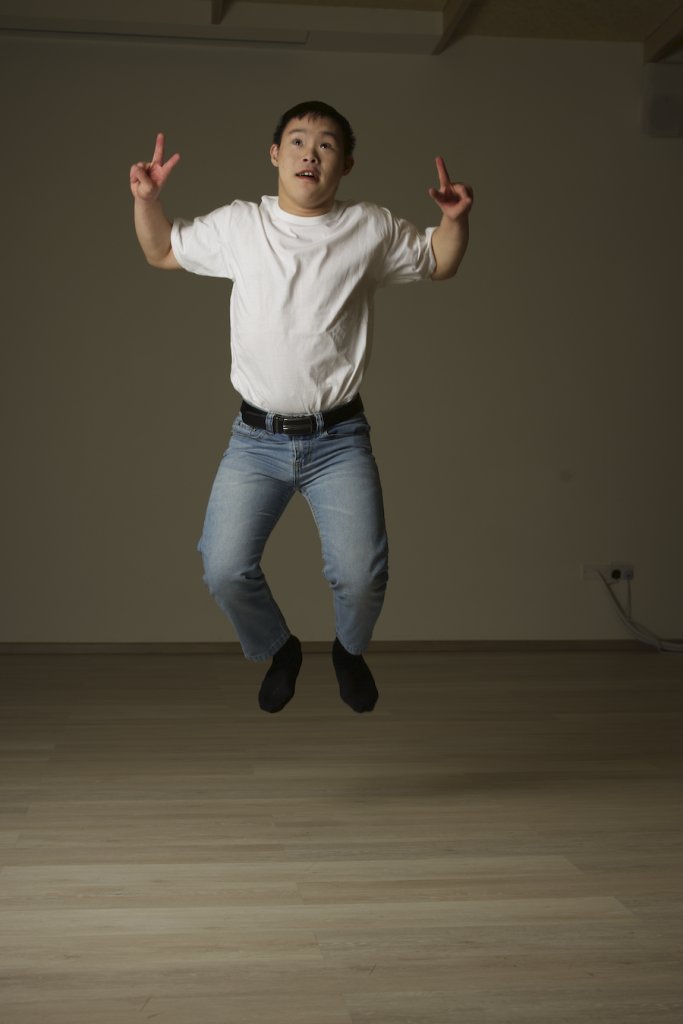
“I see working on Zoom as a blessing in disguise because you are forced to find a different footing and question certain values in the performing arts … What is the stage? Where is the audience? How do we translate the relationship of people within a physical space into the language and grammar of Zoom?”
Similarly, Ka Wai appreciates that the limitations of Zoom have actually forced him to be more creative as a theatre practitioner.
“Zoom has given me a different way of looking at things,” he says. “I would never have imagined I would use my room as part of the stage … it’s not about moving the theatre online, but how the medium can bring a new perspective to the content, how it can push boundaries.”

Working on Zoom was “exhausting and energy-sapping” for Wai Yee, a visually impaired person, because things like camera angles, lighting, or even funny moments such as someone’s cat slinking on-screen were foreign to her. It got so frustrating for her that she even “wanted to give up” because there was “so much [she] didn’t understand”.
Of course, Wai Yee persisted, figuring out solutions like taping the floor to indicate where she should put a tripod for her phone, or the play would not be exist in this form today.
And we are lucky it does. For Frozen. Broken. Poof! is not just a timely dramatisation of the yearning for physical touch that virtual connections cannot replace. It also shows us that theatre-making in an electronic space is very much like the day-to-day experience of cast members from the disabled community.
In doing so, the play alerts us that we have much to learn from the disabled community on how to navigate the constraints and possibilities of theatre-making over a flat, two-dimensional medium, and, more fundamentally, how to maintain the intimacy of human contact virtually.
Ticketing info for What If:
$5 per ticket for each show (excluding $0.50 SISTIC booking fee)
Buy now at: https://www.sistic.com.sg/events/zlm1pp2020
10% discount: Applicable to PAssion card members and Esplanade&Me Black and White cardholders
Accessibility: Audiences who are blind or vision-impaired may make their ticket bookings through Ting Yu at connect@artswok.org or message her at 9785 7685.
How do you think theatre will evolve as the pandemic drags on? Let us know at community@ricemedia.co.

